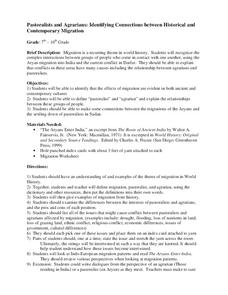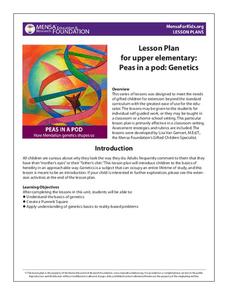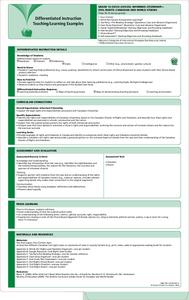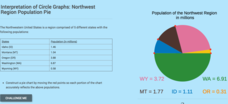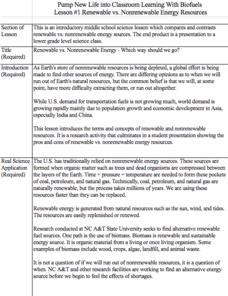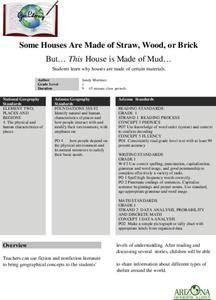Curated OER
Your Five Senses
Students identify the five senses. In this biology lesson, students participate in an experiment and use their five senses to identify various substances.
Curated OER
Ruminating on the Digestive System
Young scholars compare the digestive systems of the buffalo and of the zebra, diagram their systems, and compare their lengths. In this digestive system lesson plan, students learn about their diets as well.
Curated OER
Rights in Early America
Get your historians to hop into someone else's 18th century shoes with a simulation on rights in early America. Each individual gets an identity card, indicating their race, gender, and status (slave or free). Areas around the room are...
Curated OER
Pastoralists and Agrarians: Identifying Connections between Historical and Contemporary Migration
Pastoralists and agrarians, livestock raisers and farmers. Using the conflict in Darfur as a lens, class members investigate the conflicts that arise when these groups are forced to migrate from one area to another.
K12 Reader
Civil Rights Biography: Dr. Martin Luther King, Jr.
Introduce your class to Dr. Martin Luther King, Jr. and his many accomplishments through a one-page biography. Class members read the text and respond to three questions included at the end.
Curated OER
Digital Curation: Life and Times of Mark Twain
By digitally organizing research, your class leaves a legacy for future students on the life and times of Mark Twain. Before reading The Adventures of Tom Sawyer, scholars conduct group research projects on one of six (listed) topics....
Mrs. Hodges' Social Studies Classes
I Have Rights?!
Do young people have rights in the United States? Your pupils will not only learn the answer to this important question, but will also build vocabulary through cloze activities and gain a thorough introduction to the Bill of Rights.
MENSA Education & Research Foundation
Peas in a Pod: Genetics
Can peas have grandparents? Learn about inherited traits and heredity with a set of activities focused on Mendelian genetics. As your class learns about the process of passing traits along in Punnett squares, they take on the role of...
Stanislaus State University of California
Survival Skills 101
Prepare individuals for any type of survival situation with a presentation that focuses on basic survival skills. With a variety of how-to's, including the best ways to treat injuries, the importance of staying hydrated, tips for...
Latin America Network Information Center
Urbanization
Brazil's population has been changing dramatically in the last century. Study the causes of Brazilian urbanization, including industrialization and and migration, and the implications for the country of the populations'...
Laguna Middle School
Personal Physical Fitness Plan
Sticking to a physical fitness plan can be tricky. Support young athletes' personal fitness goals with a helpful and strategie lesson plan. They reflect on their daily habits through a pre-assessment and questionnaire, create short and...
Ontario
Informed Citizenship—Civil Rights
To launch a study of civil rights, class members brainstorm rules and expectations of behaviors at home, in school, in the workplace, and in sports. They then look at civil rights cases and examine the rules embedded in these cases.
Inside Mathematics
Population
Population density, it is not all that it is plotted to be. Pupils analyze a scatter plot of population versus area for some of the states in the US. The class members respond to eight questions about the graph, specific points and...
Chymist
Landfills and Recycling
Examine the nature of landfills through experimentation. Scholars build miniature landfills and monitor changes over a six-week period. Observations allow individuals to draw conclusions about the different types of trash and their...
CK-12 Foundation
Interpretation of Circle Graphs: Northwest Region Population Pie
Given populations of the five Northwestern states, learners create a circle graph. Using the data and the pie chart, they make comparisons between the populations of the states. Finally, the pupils determine how the chart will change...
Delaware Health and Social Services
Set Your Mind, Set Your Goals
Becoming a woman can be overwhelming for girls. An educational resource assists female learners in setting goals for their reproductive choices, physical health, and emotional and mental well-being.
Kenan Fellows
Renewable vs. Nonrenewable Energy Resources
Is one type of energy inherently good or bad? Young scientists explore energy resources in a week-long unit. After extensive research, groups create powerful position statements and presentations supporting their energy resource of choice.
Curated OER
Increasing Multicultural Understanding Through Folk Literature
Students read folktales from around the world comparing two of them using a computer generated Venn diagram. They create a game based on a folktale and use software to create a listening library of folktales.
Curated OER
Some Houses Are Made of Straw, Wood, or Brick: But... This House is Made of Mud...
First graders read and discuss several stories. They share information about different types of shelter around the world. They explain that lifestyles and shelter depend very much on where people live and how they use the resources...
Curated OER
Growing Up
This two-part resource helps little learners understand the life cycle. They view images that show how various creatures change from infancy to toddlerhood. Pupils use a circle to draw any life cycle they wish, showing it in four major...
Curated OER
Artifacts 1: What Can We Learn From Artifacts?
Sixth graders are introduced to artifacts and explore an online archaeological site to connect clues about how people once lived. In this deductive reasoning lesson, 6th graders participate in the stratigraphy game on Kids Dig Reed.com...
Curated OER
WET Science Lesson #11: How Light Affects Water
Scientists listen to the story of Wadja Egnankou who works to save African mangrove forests. They experiment with refraction and the introduction of particulate matter to water. They conclude with creative writing about the need for a...
Curated OER
How Tall is the Average 6th Grader?
Upper grade and middle schoolers explore mathematics by participating in a measuring activity. They hypothesize on what the average height of a male or female 6th grader is and identify ways to find the average mathematically. Learners...
Kenan Fellows
Sustainability: Learning for a Lifetime – Soil
Do great gardeners really have green thumbs—or just really great soil? Environmental scholars discover what makes Earth's soil and soil quality so important through research and experimentation. Learners also develop an understanding of...
Other popular searches
- Basic Needs of Human
- Common Human Needs
- Fundamental Human Needs
- Agriculture Human Needs
- Agriscience Human Needs
- Acquiescence Human Needs
- Maslow's Human Needs
- Bacic Human Needs





